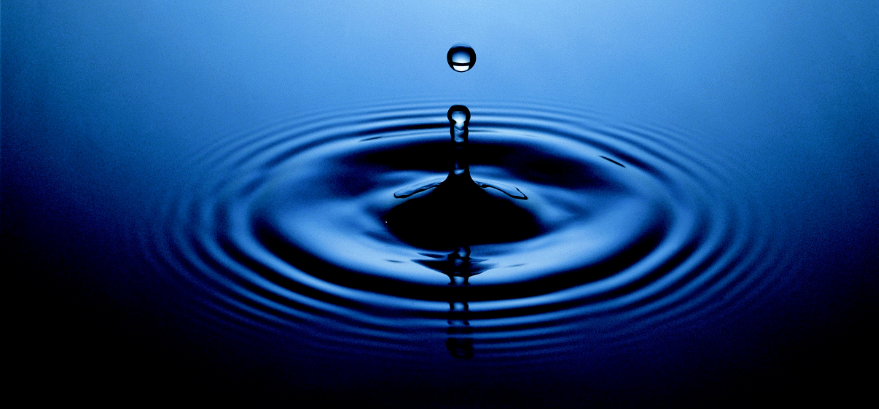
How much do you know about dihydrogen monoxide? It is a chemical substance in our reservoirs and streams. It is used in pesticides and is a part of our food supply. It has been known to cause excessive sweating, urination, even nausea. Our bodies have become so addicted to it that to be completely without it for even a few days would be fatal. Yes, my friends, I’m talking about dihydrogen monoxide, H2O, water.
A year ago, Penn and Teller pulled a stunt that had protestors at a rally signing a fake petition to ban the use of dihydrogen monoxide. They collected signatures in the hundreds with apparent ease and little to no pushback. It was not as an indictment of the education system as much as it was a stunt to expose the environmental protest culture. Still, it did successfully raise questions about how little we know about the water on which all life depends.
Over the course of a lifetime, we spend uncounted thousands to rout it through the pipes in our homes. We drink it, clean our clothes, dishes, bodies, and everything else with it. And we do our best to keep it pure and safe for our families to use. Many of us go much further by purchasing water purification and softening systems. But other than a few marketable terms, how much about our water do we really know? Here are a few things to consider:
Hard Water Myths
If you have ever sat through a sales presentation for a water purification system for your home, you have likely encountered some or the more common myths about hard water. One is that minerals in water are contaminants. The truth is they are not contaminants, but nutrients. The WHO confirms that water rich with calcium and magnesium, protects good health and leads to lower instances of heart disease and stroke.
There is another myth that says hard water is harsh, fades clothes, dries skin and hair. The real culprit for those things happens to be the chlorine in tap water. Softening systems do not remove chlorine.
These myths serve to keep us from seeking out alternatives that are proven to be better than water softeners. The Supervising Engineer of the Sanitation Districts of Los Angeles County affirms that, “automatic water softeners waste water and put a salty brine into the waste stream. High salts in the waste stream can harm aquatic life and can damage crops irrigated with downstream waters.” Knowing fact from myth is key to making good decisions about water.
Would You Like Salt With That?
Are you the kind of person who sprinkles a bit of salt in their coffee every morning? Do you keep a salt shaker in your shower to flavor your skin and hair? Of course not. But salt is a major part of how traditional water softeners work. You should be well informed of the pros and cons of salt versus salt-free systems.
Salt water systems require more maintenance and are not eco-friendly, according to saltlesswater.com. While no system is perfect, one has to consider the total cost for the conveniences they desire. For the environmentally conscious, dumping a salty brine into the environment and using more water overall is not optimal, especially if the results can be gained another way. Water softening does not have to be done with salt.
Portable vs. Potable
One of the main reasons people spend thousands of dollars on water treatment systems is to obtain better tasting drinking water. This is another area where hard questions need to be asked. Filtration systems may actually filter out helpful minerals while leaving the chlorine taste.
Some will bypass filtration and go straight for the bottled water solution. But that is the least environmentally friendly solution of all as it involves the use of a lot of plastic, not to mention the fossil fuels required to move it around the world.
When you ponder the uses of dihydrogen monoxide in your home, remember to consider the environment. And consider less harsh alternatives for experiencing the softer side of water.




















Yes, it is one of the myths that minerals in water are contaminants. Hard water is harsh, fades clothes and dries skin and hair. So it’s necessary to convert it into soft water.
I had no idea that some water softening systems had salt in them, but I’m glad I know now that I should get a salt-free system. I also found it interesting to learn that some water systems are portable and potable, I’ll be sure to ask my contractor about that next time. Thanks!
Informative Post,,,
Hard water constitutes several problems throughout your home that you may or may not have noticed. Hard water is known to clog pipes, complicate soap and detergent dissolving in water, and leave behind water spots. Some may experience a few of these hard water results and others may be accustomed to the feeling of their clothes, bedding, skin and hair after washing.
There are definitely some pros and cons of hard water, but knowing the minerals found in it is harmless is something more people should be aware of. Thanks for the interesting information!